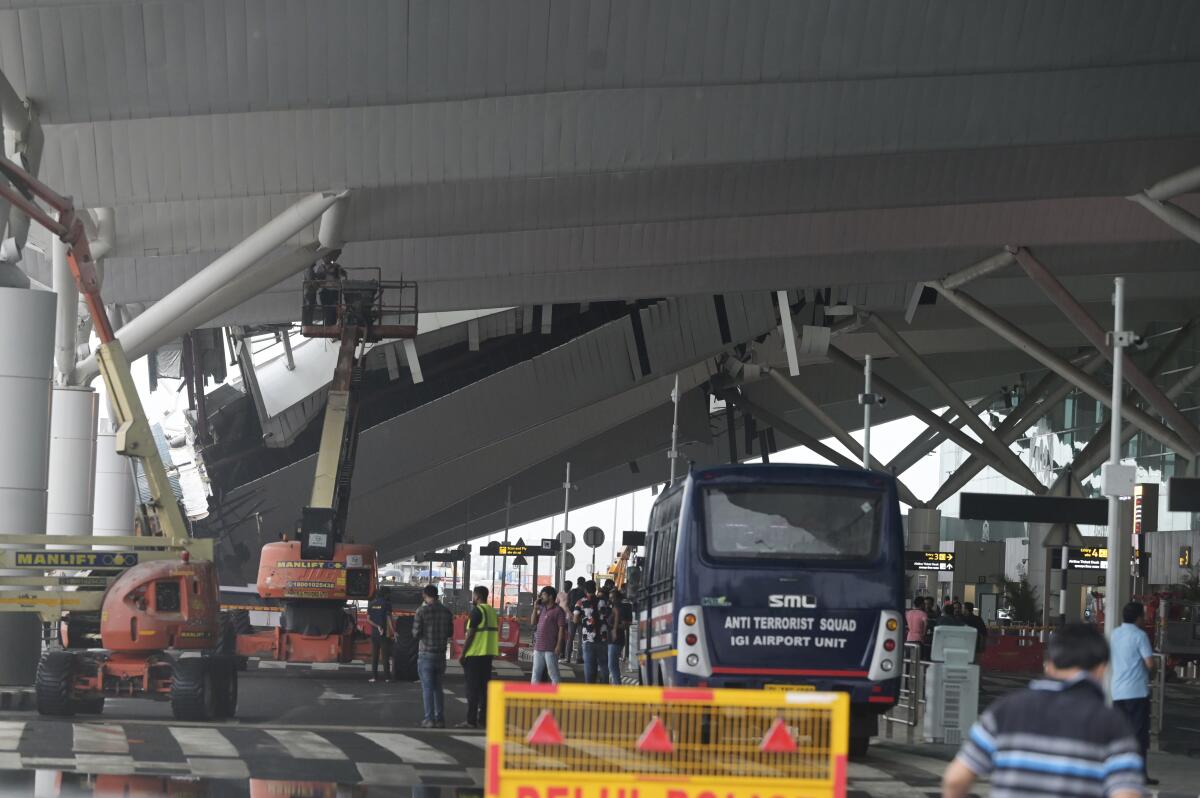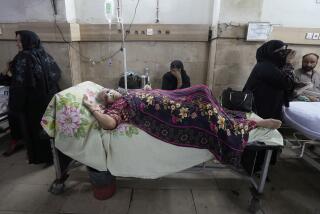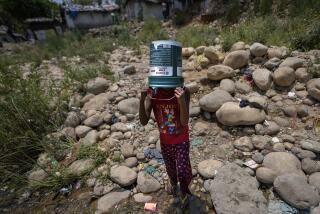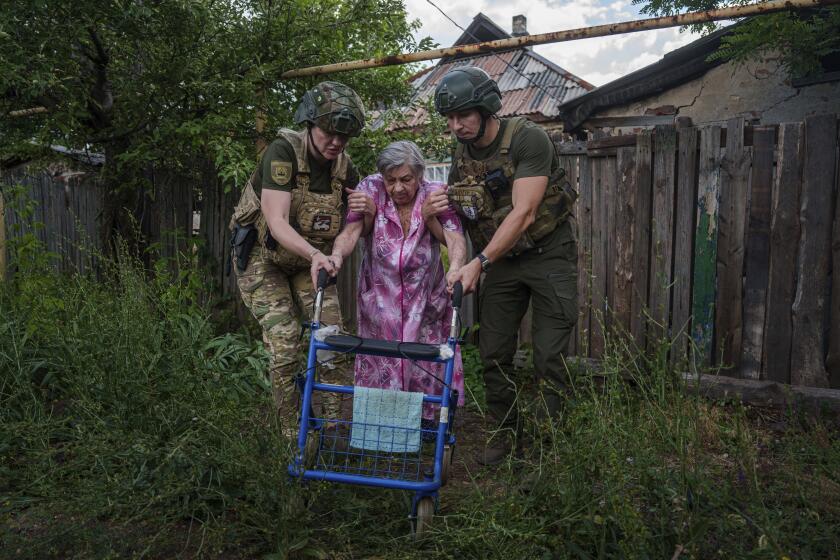Days after heat wave, intense rain causes roof collapse at New Delhi airport, killing 1 person

A portion of a canopy at a departure terminal at New Delhi’s Indira Gandhi International Airport collapsed Friday as monsoon rains lashed the Indian capital, killing one person and injuring six others, officials said.
Departures from Terminal 1 were suspended as rescuers cleared debris to rescue anyone trapped there, the airport authority said. The fire services control room said the injured were taken to a hospital.
In addition to the roof, some support beams also collapsed, damaging cars in the pickup and drop-off area at the terminal, the Press Trust of India news agency said. One of the six injured people was rescued from a car on which an iron beam had fallen, PTI said.
Anees Khan, a taxi driver, said he was sleeping in his car. “Around 5:30 in the morning there was a very loud lightning sound. When I got out, I saw that the roof had collapsed and there were around eight to 10 cars under it.”
Civil Aviation Minister K. Rammohan Naidu visited the airport and said boarding operations at the damaged terminal were being shifted to two other terminals. He told reporters that a thorough inspection of the damaged structure was being carried out.
Friday’s rain was the first big shower of the monsoon season in New Delhi, the India Meteorological Department said. It flooded streets, causing traffic snarls. The monsoon season lasts until the end of September.
According to the department, as much as 9 inches of rain fell in New Delhi in the last 24 hours, nearly three times the amount the city usually receives in the entire month of June. The intense rain follows a punishing heat wave that claimed at least 100 lives across India, including in New Delhi.
India is among the most vulnerable regions in the world to the effects of climate change. A report by the Reserve Bank of India this year found it could cost more than $1 trillion by 2030 for the country to adapt to the changes. Climate experts say monsoon rains have become more erratic, resulting in extreme rainfall events that cause landslides and flooding.
Ganguly writes for the Associated Press. AP writer Sibi Arasu in Bengaluru contributed to this report.
More to Read
Start your day right
Sign up for Essential California for news, features and recommendations from the L.A. Times and beyond in your inbox six days a week.
You may occasionally receive promotional content from the Los Angeles Times.






